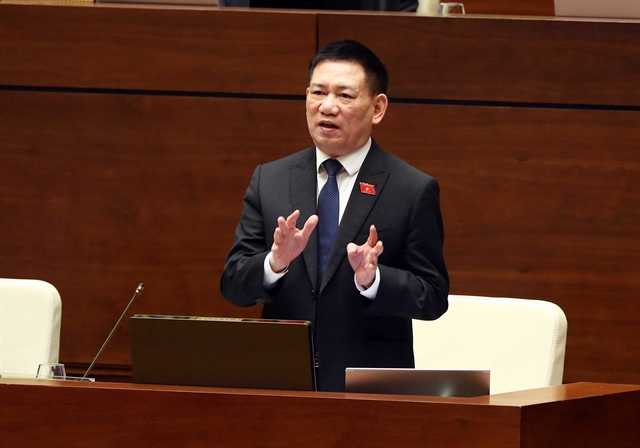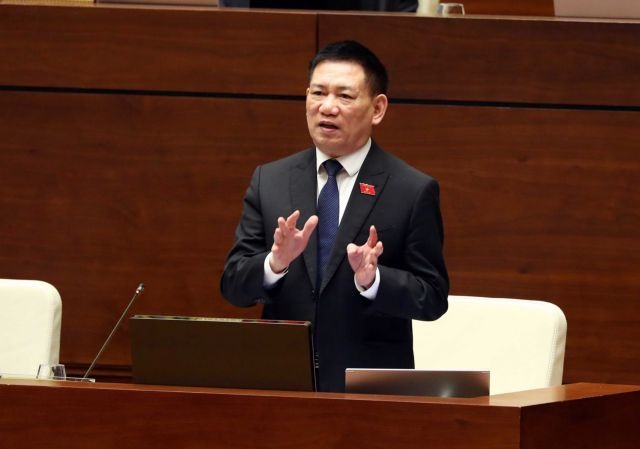[ad_1]

HÀ NỘI— Inflation control is one of Việt Nam’s urgent tasks, given the country’s deep integration into the world economy and its dependence on material imports, Minister of Finance Hồ Đức Phớc said at the 15th-tenure National Assembly’s third session meeting on Thursday.
Minister Phớc said the current anti-inflationary measures focus on monetary policy, fiscal policy and good price management solutions, along with improving the resilience of businesses and restructuring their production and business capacity.
“By doing so, enterprises will be able to create good products and raise incomes for people, thereby hedging against inflation,” he said.
Regarding opinions saying it is necessary to reduce the petrol prices, the minister said many solutions were needed simultaneously.
For example, the tax on gasoline prices in foreign countries accounts for 45-60 per cent of the price, but the rate in Việt Nam is just 28-30 per cent.
The Government slashed the environmental tax on fuel prices by 50 per cent in March. However, some other taxes, such as the special consumption tax and value-added tax, are under the jurisdiction of the National Assembly (NA).
“Tax policy is attached to the fiscal policy. Thus tax cut often means expenses must be cut. However, as a crude oil exporter with an output of over 8 million barrels per year, when the oil prices go up, we can make up a part of it,” said Phớc.
He added the Ministry of Finance was still considering a tax cut for petrol prices and will evaluate its impact and report to the Government and the NA Standing Committee.
The minister mentioned it was necessary to consider anti-smuggling measures for petrol products and the need to increase the capacity of the two refiners, Dung Quất and Nghi Sơn, in the coming time.
Good business capacity
Minister Phớc reported the budget revenue in 2021 reached VNĐ1.57 quadrillion (US$68 billion), exceeding the projection by 16.8 per cent and up 3.9 per cent compared to 2020. Of which, collection from land tax and export of crude oil accounted for 14 per cent of the total.
“This meant business and production capacity of our businesses is still good,” he said, emphasising that 55 per cent of excess revenue came from production and business activities.
In the first five months of this year, tax revenue exceeded VNĐ16.2 trillion, up VNĐ6.6 trillion compared to the same period of 2021.
Regarding concerns about the securities market, Phớc said: “Our stock market is very good,” and explained that Việt Nam’s stock market, with a history of only 22 years of establishment, is considered a good market and an effective channel to mobilise medium- and long-term capital for enterprises.
Việt Nam’s stock market capitalisation in 2021 reached more than VNĐ7.77 quadrillion ($335 billion), accounting for 92 per cent of GDP and posted a growth rate of 46.7 per cent with an average trading value of VNĐ26 trillion per day.
For the bond market, corporate bond values reached nearly VNĐ1.4 quadrillion, apart from government bonds, making up 15 per cent of GDP.
The minister said Việt Nam had ample room to develop the corporate bond market as the market size in terms of GDP is still low compared to regional peers such as China (35.6 per cent), South Korea (86.4 per cent), Malaysia (56 per cent), Singapore (36 per cent) and Thailand (25 per cent). — VNS
[ad_2]
Source link
